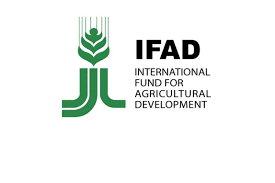The Livelihood Improvement and Family Enterprises in the Niger Delta (LIFE-ND) project, backed by the International Fund for Agricultural Development (IFAD), has officially commenced a new phase of implementation across Akwa Ibom, Rivers, and Imo states. This agri-entrepreneurship initiative aims to uplift rural livelihoods through sustainable agricultural enterprises.
Dr Abiodun Sanni, the National Project Coordinator of LIFE-ND, announced the development in a statement released in Abuja on Saturday, following a sensitisation and inspection tour conducted by the project’s officials. He explained that these three states are being financed through the Niger Delta Development Commission (NDDC), distinguishing them from other states in the region funded directly by IFAD.
Implementation in these states has started with community engagement and awareness campaigns, alongside the identification of potential trainers (incubators) and trainees (incubatees). Dr Sanni emphasised the importance of sensitisation in building local ownership of the project and ensuring community members are fully informed and involved.
This groundwork sets the stage for the profiling of selected participants, central to the LIFE-ND incubation model—a framework inspired by the traditional master-apprentice system common in eastern Nigeria. The project targets 4,250 beneficiaries per state and seeks to ensure gender balance in its rollout.

Each state will focus on specific commodities: Akwa Ibom will concentrate on cassava, oil palm, poultry, and aquaculture; Imo will prioritise cassava, rice, poultry, and aquaculture; and Rivers will develop cassava, plantain, poultry, and aquaculture enterprises.
LIFE-ND’s overarching goal is to foster a transformed rural economy in the Niger Delta—one where rural residents benefit from improved income, food security, and employment opportunities. The project, a collaboration between the Federal Government and IFAD, was launched in February 2019. The Federal Ministry of Agriculture and Food Security leads implementation, with NDDC supporting delivery in selected states.
Overall, the initiative aims to reach 38,250 beneficiaries across Abia, Akwa Ibom, Bayelsa, Cross River, Delta, Edo, Imo, Ondo, and Rivers states. IFAD is funding six of these—Abia, Bayelsa, Cross River, Delta, Edo, and Ondo—while NDDC is financing Akwa Ibom, Rivers, and Imo.
Dr Sanni noted that the project has a six-year initial phase, with additional funding planned for a further six years. IFAD committed $60 million for the first group of states between 2019 and 2025. For the NDDC-supported states, funding began with a $2.5 million commitment in August 2024, followed by another $2.5 million in January 2025, enabling full implementation in those areas.
In Imo State, beneficiaries have already begun to feel the project’s positive impact. Mr Mbaeyi Emeka, an incubator and owner of Prince Mbaeyi Emeka Farm in Obollo Autonomous Community, shared his journey from subsistence cassava farming to becoming a successful commercial farmer. He encouraged young people and women to take farming seriously, particularly cassava cultivation, highlighting its economic potential.
Mrs Ifeoma Njoku, an incubatee at Mbaeyi Farms, also spoke highly of the project, describing cassava farming as a profitable venture that has improved her household’s income. She urged more women to embrace agriculture through the LIFE-ND initiative.
Likewise, Mr Young-man Soseipiri, Assistant Farm Manager at Petros Poultry Farms in Ngor Okpala, praised the programme for empowering young trainees in poultry production, including broiler and layer farming.


